German court to rule on pro-Palestinian ‘from the river to the sea’ case in litmus test for free speech
A court in the German capital Berlin is expected to rule on the case of an activist who called out “From the river to the sea, Palestine will be free” during a pro-Palestinian rally, in what campaigners describe as a litmus test of freedom of expression for the Western European country.
The trial of a German woman with Iranian origin, identified only as Ava M, before a district court is one of several that have examined Germany’s limits on free speech ever since Gaza-based Palestinian resistance groups launched the large-scale and surprise Operation al-Aqsa Storm against Israel on October 7 last year.
The 22-year-old defendant is accused of “condoning the assault by Hamas” by using the slogan during a protest in condemnation of the bloody Israeli onslaught against Gaza on October 11 near the Sonnenallee boulevard in Berlin’s southeastern Neukölln district.
Lisa Jani, a spokesperson for the court, confirmed that while there had been about five cases in Berlin involving purported “rioting” and “incitement” at pro-Palestinian demonstrations, this was probably the first specifically around the use of the “From the river to the sea, Palestine will be free” phrase.
The slogan, which has been popular during pro-Palestinian rallies, refers to the lands between the Mediterranean Sea and the River Jordan, and symbolizes the right to return, the decolonization of Palestinian lands and the rejection of Israeli occupation.
It has been, however, misrepresented as a hateful slogan targeted at Jews by pro-Israel lobby groups in the West, including in Germany.
Jani noted that even if the defendant is found guilty on Tuesday, it would be only the beginning of a long legal battle of appeals through higher tribunals. “The ruling … would not be binding – we’re the lowest court,” she said.
Proponents have announced their decision to stage a rally outside the courthouse in support of the defendant.
Ava M’s legal team said the slogan must be seen as a “central expression of the global Palestine solidarity movement” and that pro-Palestinian activists were resisting attempts to criminalize it.
A lawyer representing her, Alexander Gorski, said German prosecutors’ varying efforts to classify the phrase as condoning criminal acts, inciting hatred or using terrorist symbols illustrated a capricious approach that was having a chilling effect on free political expression.
“What we’ve seen since October 7 is that the right to the freedom of assembly completely depends on the goodwill of the state – and if the state doesn’t want demonstrations to happen, it will just ban (them),” Gorski said.
German police have frequently suppressed pro-Palestinian rallies since the start of Israel’s war on Gaza. Hundreds have been arrested and later released, and Berlin has been slammed by rights groups for its approach to the protests.
So far during the Gaza onslaught, Israel has killed at least 39,623 Palestinians, most of them women, children, and adolescents. Another 91,469 individuals have sustained injuries as well.
Concomitantly with the Gaza war, the occupying regime has been enforcing a near-total siege on the coastal territory, which has reduced the flow of foodstuffs, medicine, electricity, and water into the Palestinian territory into a trickle.
Hezbollah strikes major Israeli air force base for first time
Iran authorizes imports and sale of unleaded gasoline at free prices
Who said what about genocide in Gaza and Lebanon at OIC-Arab League summit?
More journalists killed by Israel in Gaza than in any conflict in recent decades: Report
Israeli attacks on Syria serious threat to regional stability: Iranian diplomat
Yemen carries out pre-emptive strike against US aircraft carrier
VIDEO | Trump: End wars or fuel them?
VIDEO | Press TV's news headlines


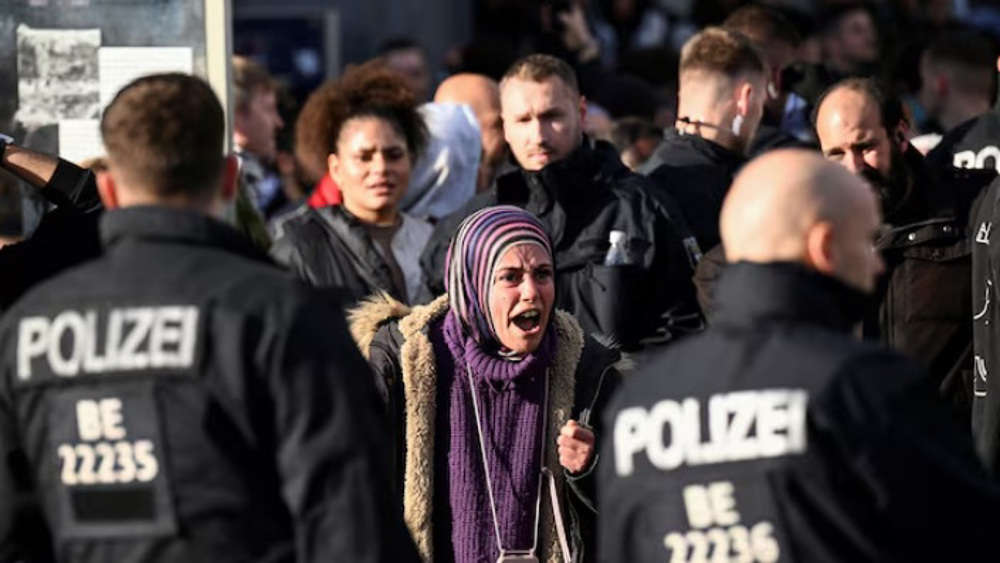
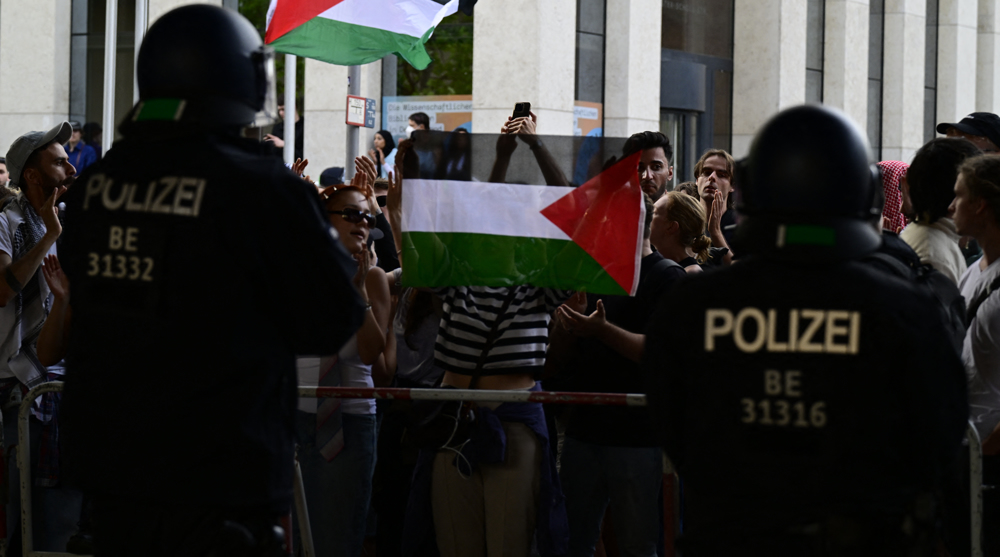
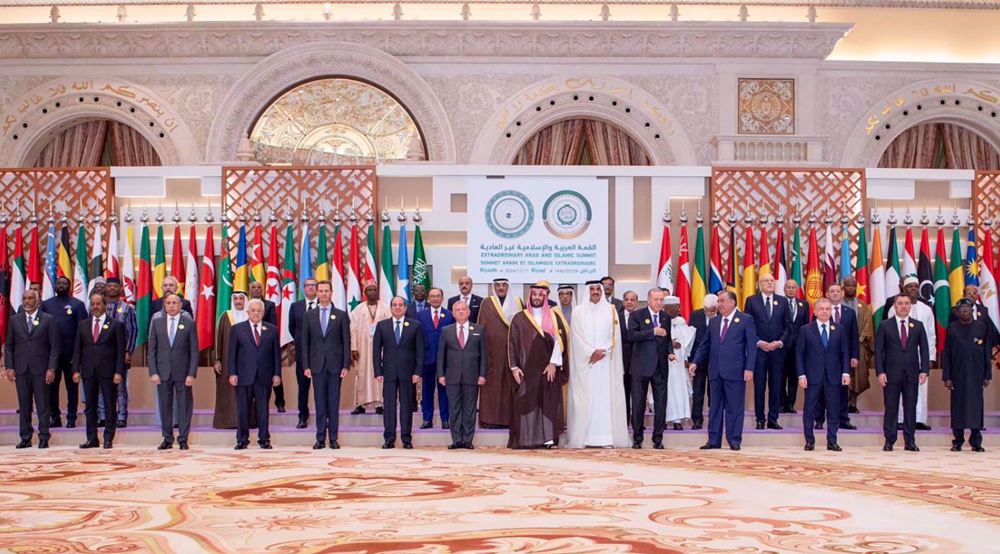
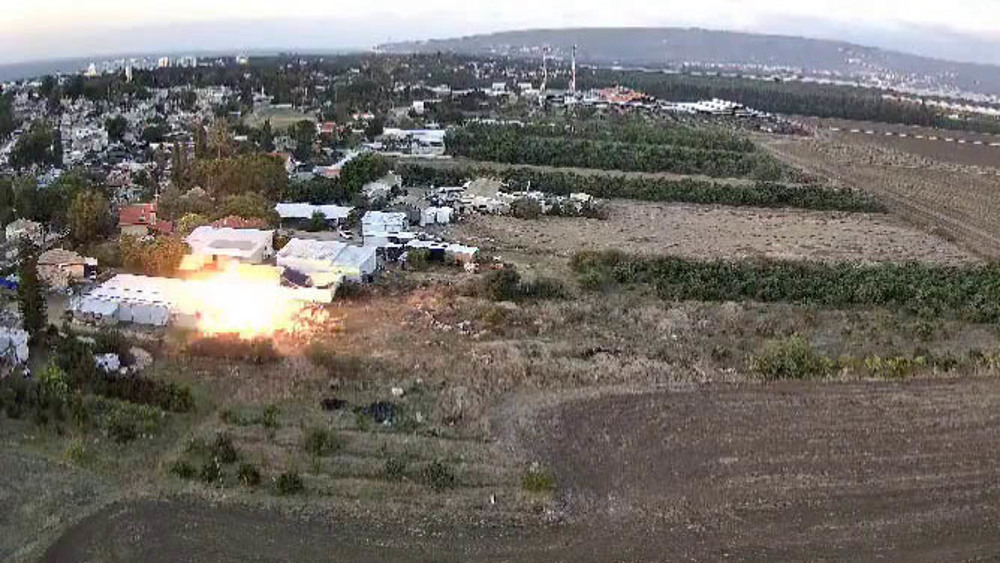
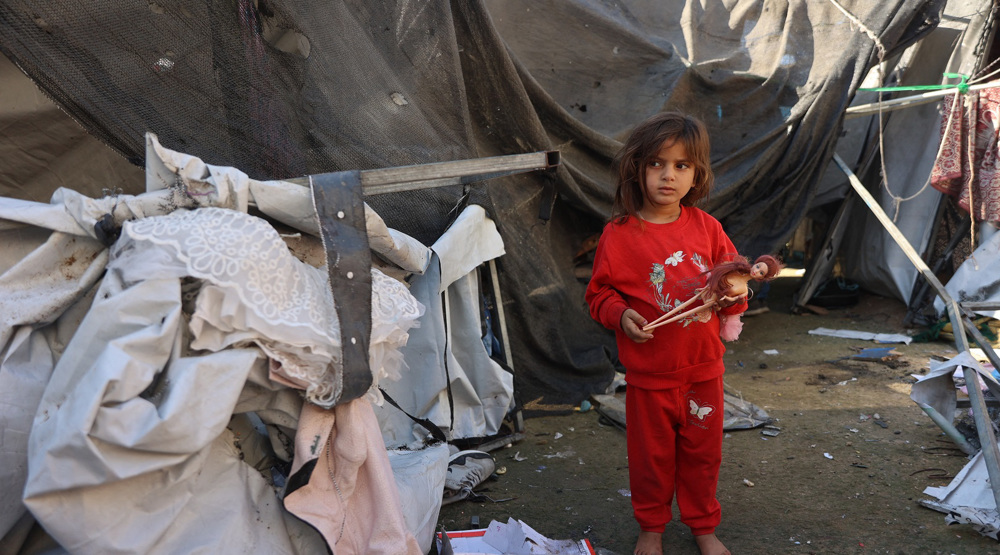




 This makes it easy to access the Press TV website
This makes it easy to access the Press TV website